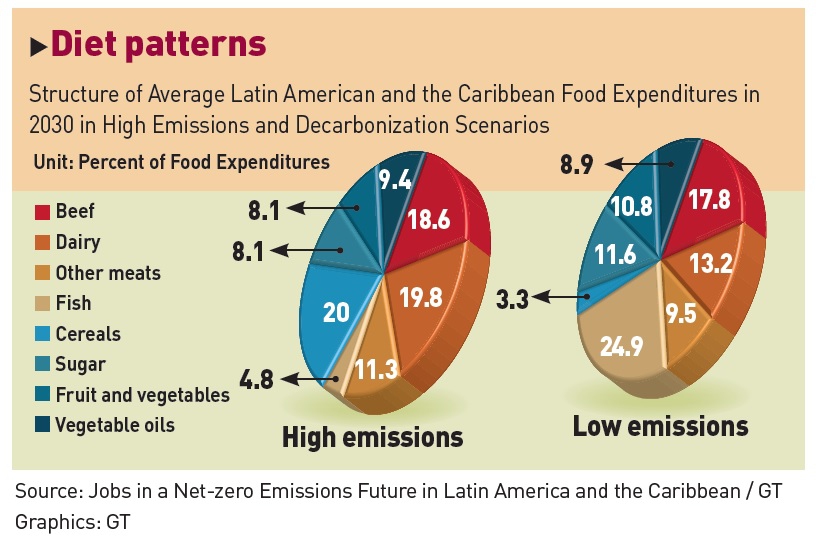Latin America urged to boost green jobs for pandemic recovery
Latin America to boost green jobs for pandemic recovery
Latin America could create 15 million new green jobs in climate and nature protection over the next decade if countries aim to cut carbon emissions as part of a sustainable economic recovery from the coronavirus crisis, researchers said on Wednesday.

It estimated 7.5 million jobs would be lost in polluting fossil-fuel extraction and livestock farming, while 22.5 million jobs would be created mainly in plant-based agriculture, green transport and renewable energy like wind and solar power.
"The trade-off between jobs, sustainable growth and environmental sustainability is a myth," said Vinicius Pinheiro, the ILO's regional director for Latin America and the Caribbean. "The truth is that it's possible to create jobs and combat climate change at the same time," he told journalists.
The report's net total of 15 million jobs is based on the assumption that countries will gradually phase out fossil fuels in their energy sectors, improve energy efficiency, invest in carbon capture and storage technology, and shift consumer diets.
"Decarburization needs to be seen as an opportunity to create jobs and economic growth in all Latin American countries," said Graham Watkins, lead environmental specialist in the IDB's climate change division.
"There are more wins than losses during the process of decarburization," he said, adding that about 7 million green jobs could be created in Brazil and 2 million in Mexico.
The ILO defines green jobs as "decent jobs that directly contribute to environmental sustainability, either by producing environmental goods or making more efficient use of natural resources." To progress toward net-zero emissions, diets need to move away from meat and dairy consumption toward more plant-based food, the report said.
Eating less meat and other animal products would "take pressure off the forests," Watkins said.

It estimated 7.5 million jobs would be lost in polluting fossil-fuel extraction and livestock farming, while 22.5 million jobs would be created mainly in plant-based agriculture, green transport and renewable energy like wind and solar power.
"The trade-off between jobs, sustainable growth and environmental sustainability is a myth," said Vinicius Pinheiro, the ILO's regional director for Latin America and the Caribbean. "The truth is that it's possible to create jobs and combat climate change at the same time," he told journalists.
The report's net total of 15 million jobs is based on the assumption that countries will gradually phase out fossil fuels in their energy sectors, improve energy efficiency, invest in carbon capture and storage technology, and shift consumer diets.
"Decarburization needs to be seen as an opportunity to create jobs and economic growth in all Latin American countries," said Graham Watkins, lead environmental specialist in the IDB's climate change division.
"There are more wins than losses during the process of decarburization," he said, adding that about 7 million green jobs could be created in Brazil and 2 million in Mexico.
The ILO defines green jobs as "decent jobs that directly contribute to environmental sustainability, either by producing environmental goods or making more efficient use of natural resources." To progress toward net-zero emissions, diets need to move away from meat and dairy consumption toward more plant-based food, the report said.
Eating less meat and other animal products would "take pressure off the forests," Watkins said.




